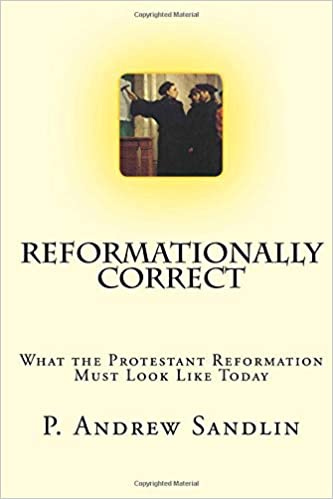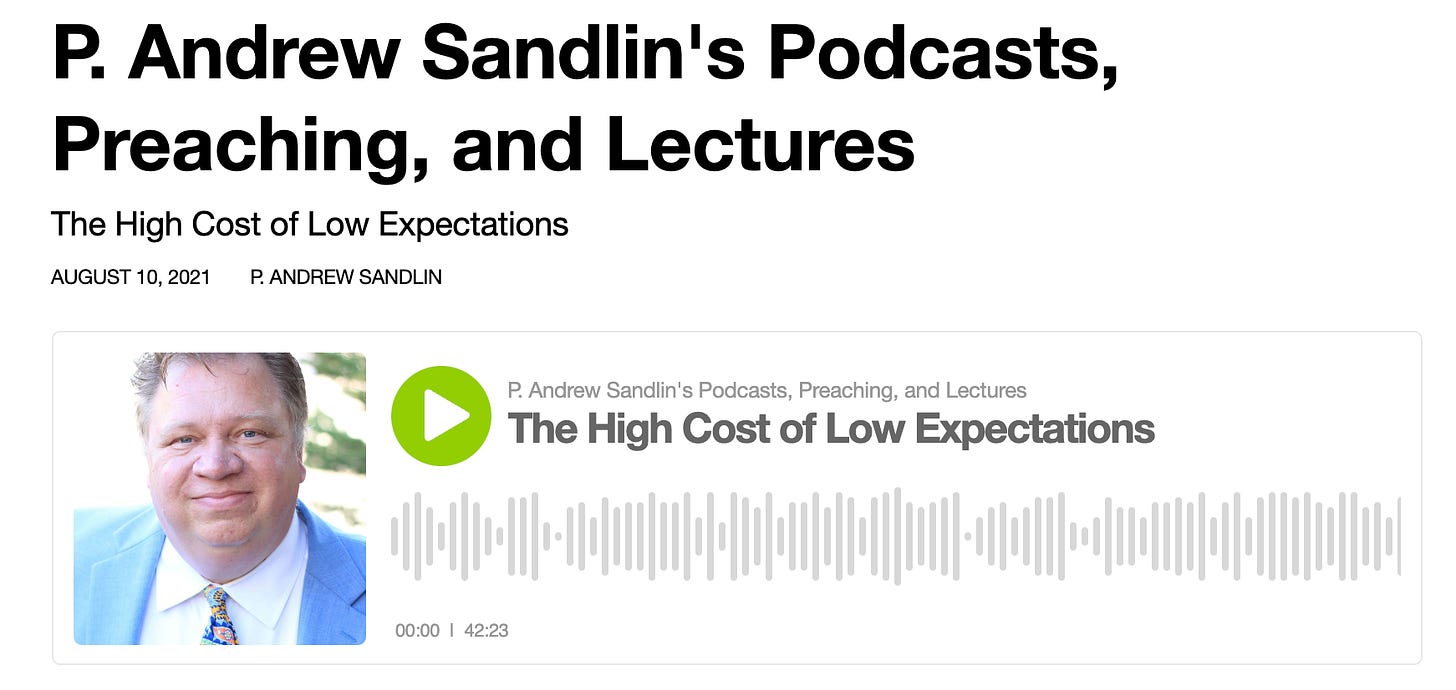Reformational Christianity, Now, More Than Ever
To de-objectify the Faith is to overturn divinely established institutions like the church. To de-subjectivize the Faith is to undercut divinely mandated internal consecration. Both are fatal.
Abraham, Kuyper, early modern Reformational theologian
Dear friends and supporters:
The Christian Faith is once-for-all, definitively delivered to the saints (Jude 3), holy religion for which we must battle and by which we must conquer the world. But if we are to expect Gospel success, emphases within that Faith must differ within different historical epochs, depending on the pressing issues of the time.
In the patristic church the dispute about the precise meaning of Christ‘s atonement was less urgent than whether Jesus Christ and the Father are equally God, and whether our Lord is equally God and man.
At the Protestant Reformation, the doctrine of justification by faith alone was recovered, and was significantly more necessary to be recovered than the Holy Spirit’s sign gifts (like tongues). The Bible is unvarnished truth, and all truth matters, but all truth should not (and cannot) be equally emphasized all the time.
Today, surrounded and suffocated by Covid-drama statism, Cultural Marxism, Black Lives Matter, the Sexual Revolution, Leftist racism, cancel culture, and contra-creational egalitarianism, an intentional Reformational Christianity is the urgent need of the hour. What is it?
Reformational Christianity defined
It is a radically Biblical faith in tune with historic orthodoxy practicing a white-hot devotion to the triune God and the application of that Faith to our decadent, apostate culture.
It is theologically bound to the early ecumenical creeds, and the consensus of such Reformation confessions as Westminster, Heidelberg, the Thirty-Nine Articles, London Baptist, and Belgic.
It is not, however, scholastically or inflexibly confessional, if by that we mean there could never under any conditions be a deviation from 16th and 17th century Reformation standards. The greatest Reformational standard of all is the Bible, and comparatively minor modifications conforming ecclesiastical expression of the Faith more closely to the Bible are not only desirable, but essential. The mere recovery of 17th century orthodoxy will not suffice to overturn 21st century apostasy. You need the Bible and Holy Spirit to do that.
Reformational Christianity is eager to be radically biblical at all costs. (see also “A Distinctly Neo-Reformational Paradigm for Cultural Engagement.”)
As we examine early 21st century Western (and increasingly Westernized Eastern) culture, three characteristics in particular of Reformational Christianity must come to the fore.
Comprehensive Commission
First, Reformational Christianity demolishes the secular/sacred barrier that has sold Christianity into slavery for several generations. That barrier is rooted largely in the medieval nature/grace distinction, according to which grace is the province of the church, and everything outside the church is comparatively neutral and not specifically subject to Jesus Christ and the Word of God.
The Protestant version of the nature/grace distinction is the dangerous Two-Kingdoms Theory: Christ rules the church by his kingdom of special grace and the world outside the church by common grace. In effect, this means that Jesus Christ and the Word of God have no authoritative role except in “sacred spaces,” sacred being defined as churchly.
Secularizing the church
Over time, as the church has refused to Christianize the culture, the culture has secularized the church and the wholesale collapse of hundreds of thousands of even conservative churches over the last year and a half (see “We Are the Hollow Church”) are testimony to this de-sacralization campaign grounded in a refusal to retake culture explicitly for Jesus Christ and the Bible.
Driving throughout the American South over the last couple of weeks, deeply ensconced in the so-called Bible Belt, Sharon and I have observed hundreds of conservative churches. Yet their ministry has engendered little discernible cultural effect on such front-burner cultural sins as abortion, homosexuality, transgenderism, pornography, ideological feminism, and Cultural Marxism.
The problem is not that there are too few churches, but that there are too few relevant churches. Culture is not subordinated to the authority of Jesus Christ by the multiplication of Christians and churches, but by the multiplication of Christian churches pressing the Lordship of Jesus Christ in all areas of life and thought.
This is precisely what Reformational Christianity champions.
(continued below)
This book champions Reformation truth within the contemporary Western church and culture. What, for example, do (or should) sola Scriptura and sola fide mean today? The historical situation of early 16th century northern European culture isn’t that of early 21st century North American culture. While the fundamental truths of the Reformation are unchanged and unchangeable, how those truths look and must be emphasized is culture-dependent.
Get the book here.
(continued)
Cultural Catholicity
Second, Reformational Christianity is catholic. Catholic simply means “universal,” and the Christian Faith by its nature is catholic. This is not identical to Roman Catholic, since any nationalization of Christianity undermines its catholic character. Catholic Christianity is universal Christianity, not national or regional or local Christianity.
Cultural catholicity refers to a universal or united front for the first and central creed of Christianity (“Jesus is Lord”) on which a genuine Christian culture is erected: it includes principally commitment to ancient creedal orthodoxy, that is, the early ecumenical creeds; the authority of God’s revelation in the Bible, creation, and his Son; and God’s moral law as the only valid religious structure of human society.
Christians of all denominations and churches and sectors that confirm this orthodox catholicity should stand shoulder to shoulder in working to restore the inescapably Christain influence in the West.
This does not mean abandoning their churches and ecclesial distinctives — their view of baptism, apostasy and perseverance, predestination and free will, specific eschatological views, church government, ordinances or sacraments, the sign gifts, and so forth. These distinctives are localized expressions of Christianity due to pursuing, as is necessary, theology as a theoretical science of interpreting the Bible as God’s inspired, infallible word. Theology ≠ revelation.
God’s plan for differing theological emphases
In many cases, these important but comparatively secondary differences are due to different emphases, which God uses to maintain the totality of his truth in the earth without concentrating it in a single ecclesiastical body.
This means that orthodox Christians need each other.
They certainly need each other in the great cultural conflicts of our time. The overbearing and idol State, the abortion industry, the sexual revolutionaries, the Cultural Marxists, and the gender dysphoria advocates couldn’t care less about the differences between Baptists and Paedobaptists, Methodists and Presbyterians, Lutherans and Calvinists, Evangelicals and Anglo-Catholics, and Pentecostals and fundamentalists. The elite secularists and neo-Pagans see all orthodox Christians of every stripe as pesky impediments to their grand versions of the utopian, atheistic society. Christians and Christianity must be bulldozed in order to make away for the glorious, godless world.
Christians should stand together, not in a single, lowest-common-denominator theological creampuff church, but as a virile, intrepid army out in the culture, banding together, by the power of the Spirit, to subordinate all areas of modern culture to King Jesus.
Complete Consecration
Third, and finally: decades ago we heard a great deal more than we do today about the necessity for the complete consecration of Christians. This appeal was often identified with a pious, “deeper-life” teaching. But the language and concept of consecration are entirely biblical; and, if anything, the necessity of consecrating ourselves to the Lord is even greater today.
In the Bible, consecrate means to purify, to hallow, to sanctify. The Old Testament priests, for example, were consecrated for tabernacle and temple service, and in the new covenant era, all Christians are kings and priests, consecrated entirely to the Lord (Rev. 1:5).
Radical secularism that engulfs us is a diabolical de-consecration mechanism, a satanic electromagnet always and everywhere pulling Christians away from whole-hearted consecration to Jesus Christ. (Christians in a Christian culture can abandon their consecration, but the social disincentives make this departure harder to pull off. A Christian society makes apostasy a difficult personal project.)
The consecrated Christian meditates daily on the Word of God; cries out to the Lord in prayer, expecting all of his prayers to be answered; delights not in the sexual filth of the world, including its entertainment, but in meditating on righteousness and purity (Phil. 4:8).
Reformational Christianity doesn’t stop at culture, family, and church but embeds itself in the inner core of the individual Christian. Reformational Christians love and respect other believers, but they couldn’t care less about the fear of man.
They fear God and live to please him.
The consecrated heart comes first
One of the large overcompensations to theological liberalism has been to act as though the recovery of biblical theology will suffice to recover Christianity. Yet backsliding and apostasy never begin with altered theology but with a deviant, de-consecrated heart. Similarly, consecrated hearts come first; the consecrated theology is always subsequent.
The same is true of consecrated culture. Retaking politics grounded in God’s moral law, for example, while necessary, is not sufficient. More importantly, it must follow, not precede, a consecrated heart.
Reformational Christianity comprises both objective and subjective features, and all are necessary. Objective features like baptism, the Lord‘s table, church membership, and justification by faith alone must always and everywhere be accompanied by immersion in the Bible, ceaseless and believing prayer, and a worshipful heart.
Interestingly, as many conservative churches have recovered the objectivity of the Faith, they have de-emphasized the subjectivity of the Faith and turned the Sunday morning worship service into a visual performance. That very disposition led ancient Israel to apostasy. To de-objectify the Faith is to overturn divinely established institutions like the church. To de-subjectivize the Faith is to undercut divinely mandated internal consecration.
Both are fatal.
Conclusion
Cultural depravity, perversion, and apostasy are so aggressive today that anything less than intentional, intrepid, oppositional Christianity will be bulldozed and assimilated. Christianity as usual won’t suffice.
This former iteration is Reformational Christianity.
Will you consider a tax-deductible donation to CCL via PayPal or Venmo? Or mail a check to CCL, Box 100, Coulterville, CA 95311. God uses you to keep us going — and expanding.
Personal
Tomorrow Sharon and I plan to roll into Pratt, Kansas, where Sunday I’m planning to speak in adult Sunday school on “Apostasy, Perseverance, and Assurance,” and in morning worship on “Prayer, Fuel of the Kingdom” at Trinity Evangelical Church, Doug Enick, pastor.
Next Friday I hope to address in this e-newsletter “Christian Spirituality: Earthy Versus Ethereal.”
Until then: Stand boldly. Speak forcefully. Pray fearlessly. And Christianize comprehensively.
Yours for Reformational Christianity,
Founder & President, Center for Cultural Leadership
Fruits of Grace in Culture
Here’s the video of my lecture “Fruits of a Theology of Grace in Culture” held at the For God and Truth Conference, Decatur, Alabama last week.
The High Coast of Low Expectations
Every generation historically claims it lives in unprecedented times, but certain aspects of our times are in fact objectively unprecedented, and they are unprecedentedly evil as a result of one great philosophical twist and one great ecclesial heresy. The Christian calling is to overturn these ideational errors, restore the Faith, and take back the West for Jesus Christ.
Listen here.
More great stuff:
The Center for Cultural Leadership site is here.
My Amazon author page (print and digital) is here.
You can find my sermons and lectures at my YouTube channel.
Sign up to get my blog updates here.
Here’s my Twitter feed.
If you want to get the free exclusive hard copy publication Christian Culture, please send me a Facebook private message.
The CCL phone number is 831-420-7230.
The mailing address is:
Center for Cultural Leadership
P.O Box 100
Coulterville, CA 95311








